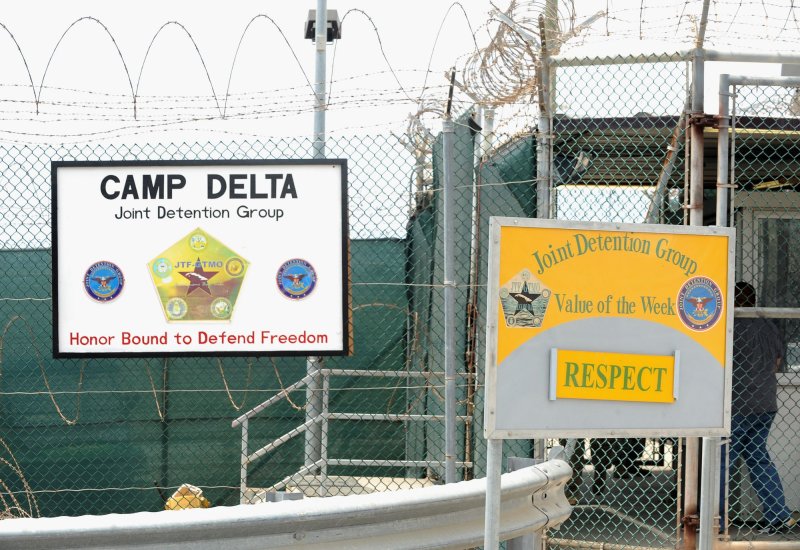A sign for Camp Delta where detainees are housed at Naval Station Guantanamo Bay in Cub. File photo. UPI/Roger L. Wollenberg |
License Photo
WASHINGTON, Oct. 19 (UPI) -- A U.S. Defense Department official has warned against legislation that would curb a president's ability to decide how terrorism suspects would be tried.
In a speech to the conservative Heritage Foundation Tuesday, Pentagon general council Jeh Johnson said provisions of House and Senate bills would significantly restrict transferring detainees out of the U.S. military prison in Guantanamo Bay, Cuba, and could require civilian authorities to transfer cases involving al-Qaida suspects to the military for prosecution, The Wall Street Journal reported.
The military can't be the sole answer for how the United States deals with terrorism, Johnson said.
"There is danger in over-militarizing our approach to al-Qaida and its affiliates," Johnson said. "There is risk in permitting and expecting the U.S. military to extend its powerful reach into areas traditionally reserved for civilian law enforcement in this country."
The proposed changes enjoy strong support among Republican congressional members.
Johnson also told his audience the White House won't add another detainee to the Guantanamo facility, The Miami Herald reported.
As of Tuesday, the facility held 171 detainees, including dozens cleared for release if the State Department can secure safe resettlement agreements and Defense Secretary Leon Panetta signs a waiver Johnson said was "onerous and near impossible to satisfy."
"Not one Guantanamo detainee has been certified for transfer since this legal restriction has been imposed," Johnson said.
Charles Stimson, a former Pentagon official who now is a Heritage Foundation legal scholar, wrote in a paper the congressional bills would deny the president "needed flexibility."
"Most of the proposed legislation potentially encroaches on the commander in chief's executive power under the U.S. Constitution," Stimson wrote.
Human rights groups, which have voiced skepticism about military commissions, said the legislation would limit an administration's ability to fight al-Qaida and praised Johnson's defense of civilian trials for many terrorism suspects, the Journal reported.
"Mandating military custody is the epitome of over-militarizing our counter-terrorism operations," said Raha Wala, advocacy counsel for Human Rights First. "There is no need, 10 years after 9/11 [the Sept. 11, 2001 terror attacks on the United States], to be codifying and expanding detention authority for terrorism suspects."















